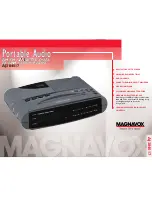
III
Table of Contents
1
Introduction ........................................................................................................................1-1
2
Features.............................................................................................................................2-1
2.1
E1 Spread Spectrum Radios............................................................................................................... 2-1
2.2
Core Technology ................................................................................................................................. 2-1
2.3
Composition and Principle .................................................................................................................. 2-2
2.3.1
System Composition............................................................................................................................................ 2-2
2.3.2
System Principle ................................................................................................................................................. 2-2
3
Technological Characteristics ............................................................................................3-1
4
Product Description............................................................................................................4-1
4.1
Indoor(IDU)/Modem ............................................................................................................................ 4-1
4.1.1
General Description ........................................................................................................................................... 4-2
4.2
Outdoor(ODU)/RF Unit........................................................................................................................ 4-7
4.2.1
General Description ........................................................................................................................................... 4-7
4.3
Date Port Guide .................................................................................................................................. 4-8
5
Interface.............................................................................................................................5-1
5.1
Front Panel.......................................................................................................................................... 5-1
5.1.1
Engineering Order Wire(EOW) .......................................................................................................................... 5-1
5.1.2
LCD Description ................................................................................................................................................ 5-2
5.2
LCD Operation .................................................................................................................................... 5-5
5.2.1
IDU Info ............................................................................................................................................................. 5-5
5.2.2
ODU Info.......................................................................................................................................................... 5-10
5.2.3
Test Item............................................................................................................................................................ 5-12
5.2.4
Remote Info....................................................................................................................................................... 5-20
5.2.5
IP Info............................................................................................................................................................... 5-22
5.2.6
LAN Info ........................................................................................................................................................... 5-25
5.2.7
Self Test Info ..................................................................................................................................................... 5-27
5.2.8
Link Info ........................................................................................................................................................... 5-29
6
Environmental Condition....................................................................................................6-1
6.1
Cable................................................................................................................................................... 6-1
6.2
Operating Temperature Range ........................................................................................................... 6-1
6.3
DC Input Voltage ................................................................................................................................. 6-1
6.4
Power Consumption............................................................................................................................ 6-1
6.5
Humidity .............................................................................................................................................. 6-1
7
Configuration .....................................................................................................................7-1
7.1
Configure via Telnet ............................................................................................................................ 7-1





































